The Home Buying Process in Nigeria: A Complete Walkthrough
Buying a home is one of the most significant financial decisions you’ll ever make, and in Nigeria, the process can often seem overwhelming, especially if you’re a first-time buyer. The Nigerian real estate market is dynamic, with unique legalities, financing options, and documentation that you need to be aware of. Whether you’re looking to buy in Lagos, Abuja, or Port Harcourt, understanding the home-buying process can help you make informed decisions and avoid costly mistakes.
In this guide, we’ll walk you through the entire home-buying process in Nigeria, from start to finish, so you can confidently navigate this exciting yet complex journey.
1. Set a Realistic Budget and Determine Your Financing Options
The first step in buying a property in Nigeria is understanding your budget. A clear budget will help you narrow down your property search and ensure that you don’t fall in love with a property you cannot afford. It’s also essential to factor in the various costs associated with buying a home in Nigeria, beyond the purchase price.
Key financial considerations include:
- Deposit: In most cases, you will need a deposit of 10-30% of the property’s price, especially if you’re applying for a mortgage. Some banks and financial institutions may offer mortgages with lower down payments, but this often comes with higher interest rates.
- Additional costs: Don’t forget to account for other fees such as stamp duty (usually 1% of the property price), legal fees (typically 1-5%), and registration and survey fees.
- Financing options: If you’re not purchasing the property outright, consider the various mortgage and loan options available in Nigeria. Many Nigerian banks, including GTBank, Access Bank, and First Bank, offer mortgages to both salaried and self-employed individuals. Alternatively, you may consider cooperative loans or private financing.
2. Conduct Thorough Research on the Property Market
Before you even start looking for properties, it’s important to conduct thorough research on the Nigerian property market, especially in your chosen location. Prices can vary significantly depending on the city, neighborhood, and even the type of property you’re interested in. Factors to research include:
- Market trends: Understand the average cost of properties in the area, whether prices are rising or falling, and how long properties typically stay on the market.
- Location: Choose an area that meets your lifestyle needs. Consider proximity to your workplace, schools, hospitals, shopping centers, and other amenities. Security is also an important factor when choosing a neighborhood in Nigeria.
- Property types: Decide whether you want a detached house, semi-detached house, flat, or townhouse. Each type of property has different implications for maintenance, price, and resale value.
3. Choose the Right Property
Once you’ve determined your budget and have a good sense of the market, it’s time to start looking for properties. You can search online, visit local listings, or work with a real estate agent. Real estate agents are helpful in finding properties that meet your needs, and they can also assist with negotiations and paperwork.
As you browse properties, be sure to consider:
- Property age and condition: Newly built homes may be more expensive but require less maintenance. Older properties may offer better value but might need repairs and renovations.
- Size and layout: Does the property have enough space for your family or future plans? Is the layout practical for your lifestyle?
- Amenities: Make sure the property comes with the necessary amenities, such as a reliable water supply, good drainage, stable electricity, and security features.
4. Hire a Real Estate Lawyer
It’s essential to hire a qualified real estate lawyer before proceeding with the purchase. The legal process in Nigeria can be tricky, and having a professional who understands local laws and regulations can help protect you from potential legal issues. Your lawyer will:
- Verify property ownership: They’ll check the seller’s title to ensure they have the legal right to sell the property.
- Review the contract: Your lawyer will carefully review the sales agreement to ensure that it’s fair and that all terms are clear.
- Handle documentation: They will ensure that all legal documents, including the deed of assignment and the certificate of occupancy (C of O), are in order before the transaction is finalized.
5. Conduct a Thorough Property Inspection
Before making an offer, it’s crucial to conduct a thorough property inspection. This will help you avoid purchasing a property with hidden problems that could cost you a lot of money down the road. Hire a professional surveyor or building inspector to assess:
- Structural integrity: Check for issues such as foundation cracks, roof leaks, and mold. Structural problems can be expensive to repair.
- Plumbing and electrical systems: Make sure that the property has a properly functioning plumbing system and electrical wiring that meets safety standards.
- Furnishings and fittings: Inspect the state of appliances, fixtures, and fittings to ensure they are in good working order.
If the property has significant issues, you may want to renegotiate the price or request that the seller repairs these issues before completing the sale.
6. Negotiate the Price
Once you’ve found a property you like and have inspected it thoroughly, it’s time to negotiate the price. In Nigeria’s real estate market, there is often room for negotiation, so don’t hesitate to make a reasonable offer below the listed price. Here are some tips for successful negotiations:
- Understand the market value: Research similar properties in the area to understand the going rates and ensure that you’re not overpaying.
- Use property defects as leverage: If the property has issues that need fixing, use these as bargaining tools to lower the price.
- Consider future developments: If the area is expected to experience significant growth, this can be used as a reason to justify a slightly higher price.
If both parties agree on the price, the next step is to sign the agreement.
7. Finalize the Sale and Transfer of Ownership
The final steps in the home-buying process are the legal and financial transactions that complete the sale and transfer of ownership. At this stage:
- Sale agreement: Both parties (buyer and seller) will sign the sale agreement. This document outlines the terms and conditions of the sale, including the price, payment plan, and property description.
- Payment: Pay the agreed-upon amount. Ensure that all payments are documented and traceable.
- Payment of fees: You’ll need to pay all necessary fees, including stamp duty (1% of the sale price), legal fees, registration fees, and survey fees.
- Transfer of documents: The seller will transfer the title documents to you, and the property will officially be registered in your name. You’ll need to apply for Governor’s Consent to make the transfer of ownership legally binding, especially if the property is leasehold.
8. Register the Property
Once the sale is complete, it’s essential to register the property at the Land Registry. This ensures that the property is officially recorded in your name and protects your legal rights as the owner.
The registration process involves:
- Title documentation: Ensure that the certificate of occupancy (C of O) and deed of assignment are transferred to your name.
- Payment of registration fees: You’ll need to pay a registration fee, which is typically a small percentage of the property’s value.
- Governor’s Consent: For properties located on government land, the transfer must be approved by the state governor.
Conclusion
The home-buying process in Nigeria can be complex, but with careful planning, research, and the right professional assistance, you can successfully navigate it. By setting a clear budget, understanding the market, conducting thorough inspections, and working with professionals, you’ll be in a better position to make informed decisions and avoid costly mistakes.
Buying property is not just a financial investment—it’s an emotional and personal one. Whether you’re purchasing your dream home or making an investment for the future, the journey to homeownership in Nigeria can be incredibly rewarding when done correctly.
Start the process today with confidence, and take the first step toward owning your own home in Nigeria!

